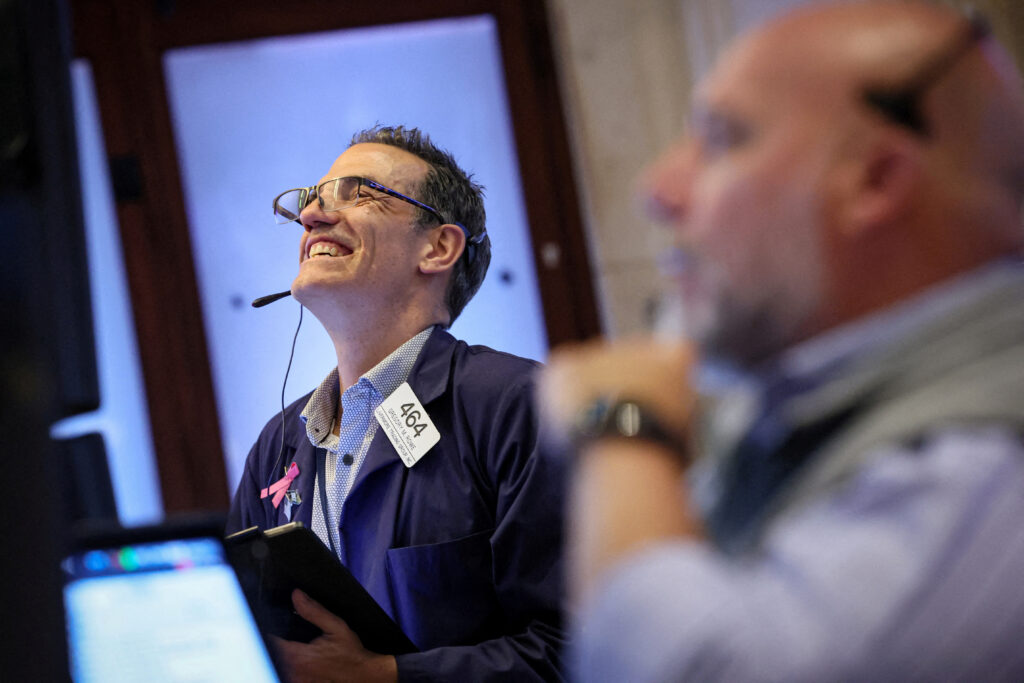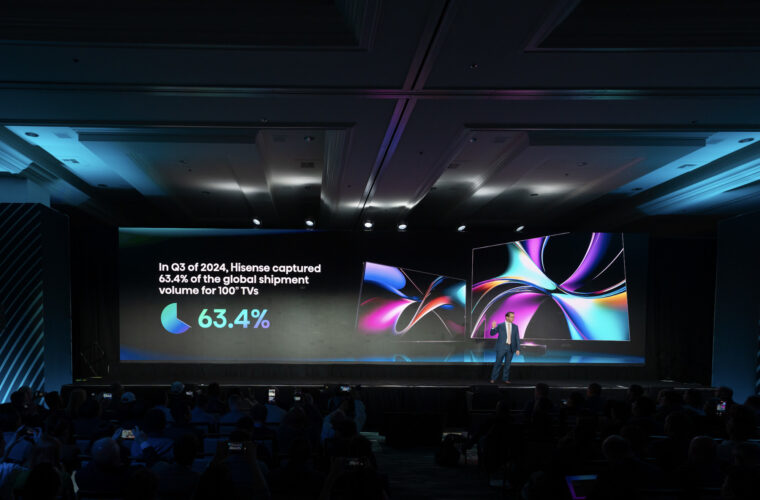By Chuck Mikolajczak and Lewis Krauskopf
NEW YORK (Reuters) – Investors are gearing up for the final reconstitution of the benchmark indexes by FTSE Russell on Friday, with the furious rally in artificial intelligence (AI) related stocks over the past year expected to leave an outsized imprint on their final shape.
The Russell Reconstitution, an event that typically results in one of the busiest trading days of the year, will become official after the closing bell on Friday and concludes a multi-step process by FTSE Russell for the annual refresh of its indexes.
This once-a-year change prompts fund managers to adjust their portfolios to reflect the new weightings and components.
This refresh encompasses a range of the Russell indexes, such as the Russell 1000 index of large-cap stocks and the Russell 2000 index of small-cap names which together make up the Russell 3000 index. In addition, there are style indexes such as the Russell 1000 growth and Russell 2000 value indexes.
Since last year’s reconstitution, the furious rally in stocks seen as likely to benefit from AI, names such as Nvidia and Super Micro Computer, is expected to significantly impact Russell’s growth and value indexes this year.
Even with a recent slide, Nvidia shares as of Monday have rallied about 180% from a year ago, while Super Micro has gained more than 230%. Meta Platforms has jumped nearly 75% and Microsoft has climbed more than 31%.
The outperformance in growth means there will be fewer than 400 stocks in the Russell 1000 growth index, according to Jefferies equity strategist Steven DeSanctis in New York, who estimates the top five names will account for over 44% of the weighting.
“All the top names keep getting a chunkier and chunkier proportion,” said DeSanctis.
In addition, the weightings in the Russell 2000 growth will shift and DeSanctis anticipates a 4.6% decrease in tech’s weighting while health care will gain 3.4%.
The Russell 1000 growth index is expected to have about two-thirds of its components in just technology and communication services, said Bryant VanCronkhite, senior portfolio manager at Allspring Global Investments in Menomonee Falls, Wisconsin.
Meanwhile, about 45 stocks are leaving the growth index, reducing the index to just over 390 names, compared to roughly 870 in the counterpart value index, VanCronkhite said.
“It becomes much more challenging to beat benchmarks when you have fewer tools in the toolbox,” VanCronkhite said. “If you have a smaller number of names, you may have fewer options to construct the ideal portfolio.”
While some index providers choose to constantly refresh their indexes to keep a fixed amount of components in them, FTSE Russell only reconstitutes once per year, with the exception of adding initial public offerings on a quarterly basis.
Because the reconstitution is well telegraphed every year, it also creates additional demand for buying and selling stocks as some investors may see the additional liquidity as an opportunity to take advantage of any price dislocations that may result.
At the June 2023 reconstitution, $72.7 billion and $61.7 billion in U.S. stocks traded in the closing moments of Friday trading on the New York Stock Exchange and Nasdaq exchanges, respectively, according to FTSE Russell.

Due to the concentration in the mega cap growth stocks such as Nvidia this year, the typical large cap growth manager is underweight by the top ten benchmark stocks by 16.7%, UBS senior U.S. equity strategist Patrick Palfrey estimated in a report late last month. Palfrey expects the top 10 company weights in the Russell 1000 growth index to increase from 56.1% to 61.3% after the refresh.
“In theory, the increase in concentration from the rebalance would create buying pressure in these stocks, in practice, the impact should be mitigated by portfolio diversification rules,” the UBS analysts said in the report to clients, noting this should increase tracking error among growth managers.
As of December 2023, approximately $10.5 trillion in assets were benchmarked to the Russell U.S. indexes and $15.9 trillion globally. While Russell has begun offering indexes that either cap the weight of the largest market cap stocks or exclude them, there are no plans to adjust the methodology of the indexes to account for the market concentration.
“We’re here as an index provider to reflect the market. That’s what we’re hearing consistently from our clients that they want,” said Catherine Yoshimoto, Director of Product Management for the Russell US Indexes at FTSE Russell.
“And for those who have other needs, we are figuring out solutions that could work for them, like the capped indexes or exclusion indexes or different segmentations of the market.”



